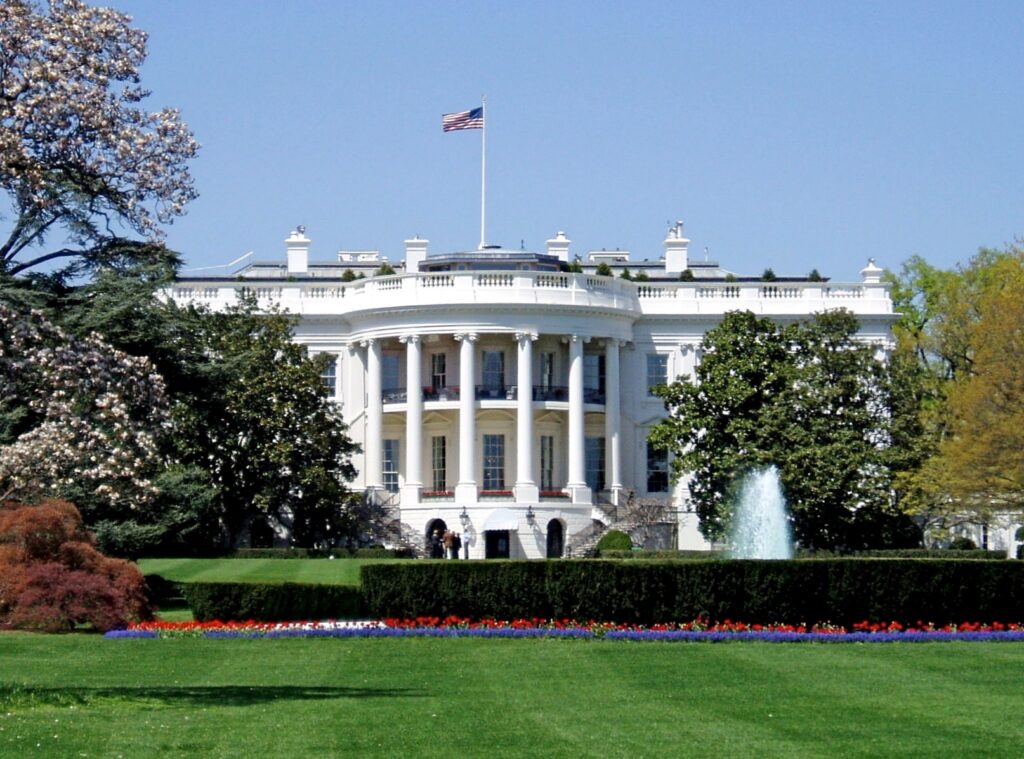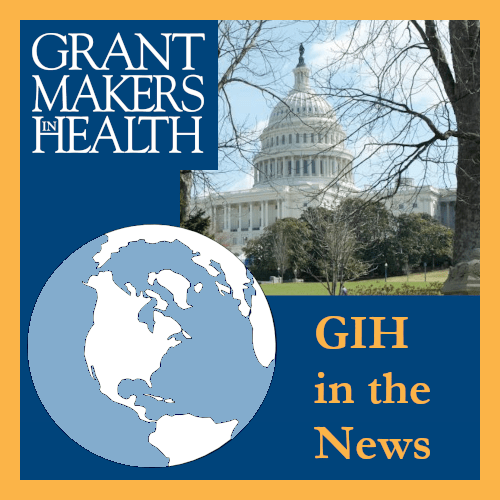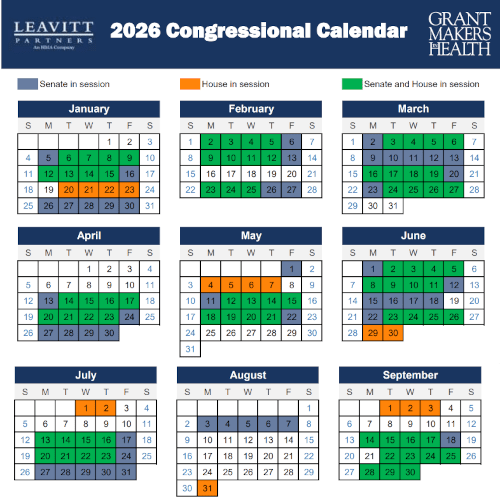Deadlines in Health-Related Executive Orders and Presidential Memoranda
This GIH policy resource details many of the health-related executive orders issued by the administration and includes a calendar of upcoming implementation deadlines.
GIH President and CEO Cara V. James Joined The Rural Impact Podcast for a Conversation about the Intersections of Policy and Philanthropy
On December 4, 2025, Cara V. James, President and CEO of Grantmakers In Health (GIH), was featured in an episode of The Rural Impact podcast. She joined Michelle Rathman, host of The Rural Impact and strategic communications advisor in health care policy, for a conversation on the intersections of policy and philanthropy, challenges with rural health funding, and more. “Policies that are impacting rural communities are…
2026 Congressional Calendar
Developed in collaboration with Leavitt Partners, this calendar tracks when each house of congress will be in session in 2026.
GIH Health Policy Update Newsletter
An Exclusive Resource for Funding Partners
The Health Policy Update is a newsletter produced in collaboration with Leavitt Partnersi and Trust for America’s Health. Drawing on GIH’s policy priorities outlined in our policy agenda and our strategic objective of increasing our policy and advocacy presence, the Health Policy Update provides GIH Funding Partners with a range of federal health policy news.
Vitalyst Health Foundation: October 2024
Vitalyst Health Foundation launched its Systems Change Grant request for proposals. The Systems Change Grants support coalitions in implementing their desired systems change. By the end of the grant period, coalitions will have either fully implemented or made significant advancements toward their systems change project.
Missouri Foundation for Health: October 2024
In the Speak Up MO report, residents’ top responses identified several priorities for improving health, including expanding health care coverage or implementing universal health care, lowering health care costs, and addressing the cost of living.
John A Hartford Foundation: October 2024
A national survey, “Meeting the Growing Demand for Age-Friendly Care: Health Care at the Crossroads,” released by Age Wave and The John A. Hartford Foundation, found 82 percent of older adults say the United State health care system is not prepared for the growing and changing needs of America’s aging population. After reviewing all survey findings, five key recommendations were identified to improve health care for older adults and promote healthier, happier aging.
Episcopal Health Foundation: October 2024
Episcopal Health Foundation’s (EHF) annual poll shows continuing health care affordability and access crisis in Texas. EHF’s poll found that 64 percent of Texans said they skipped or postponed some sort of health care because of the cost. That includes things like check-ups, treatments, tests, filling prescriptions, and dental care. That percentage is slightly down from the 68 percent who said they skipped care last year – the highest percentage in the six-year history of EHF’s poll.
The Commonwealth Fund: October 2024
The Commonwealth Fund released a report, Mirror, Mirror 2024: A Portrait of the Failing U.S. Health System, to compare health system performance in 10 countries, including the United States, to glean insights for United States improvement. It conducted an analysis of 70 health system performance measures in five areas: access to care, care process, administrative efficiency, equity, and health outcomes.






